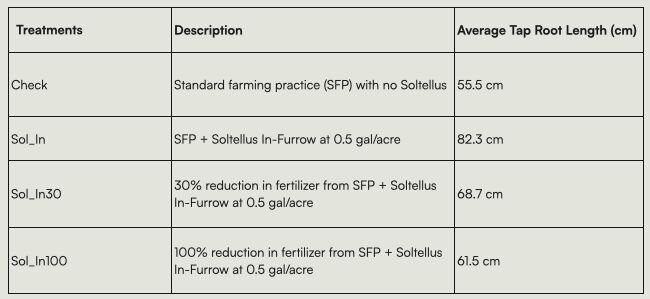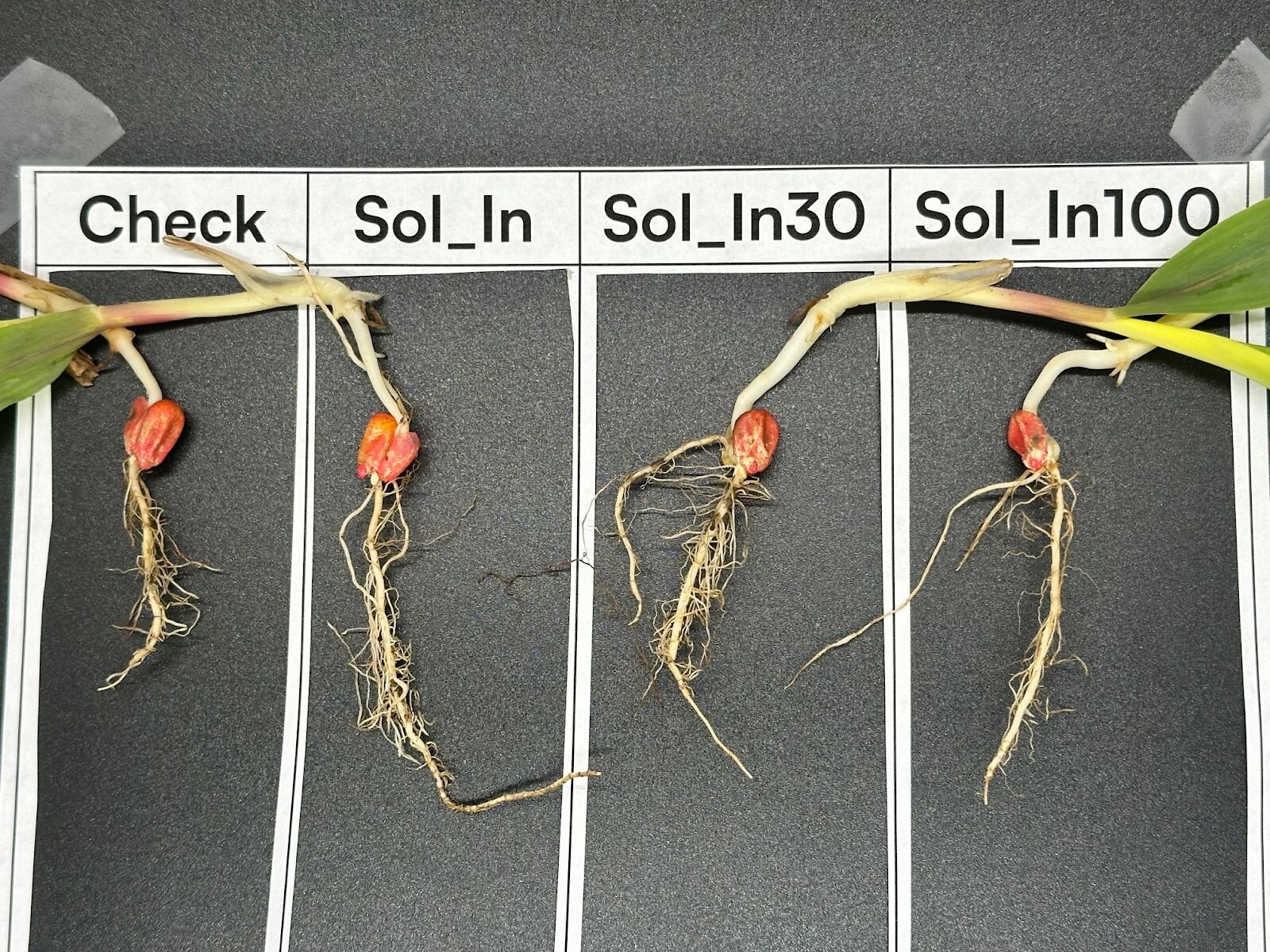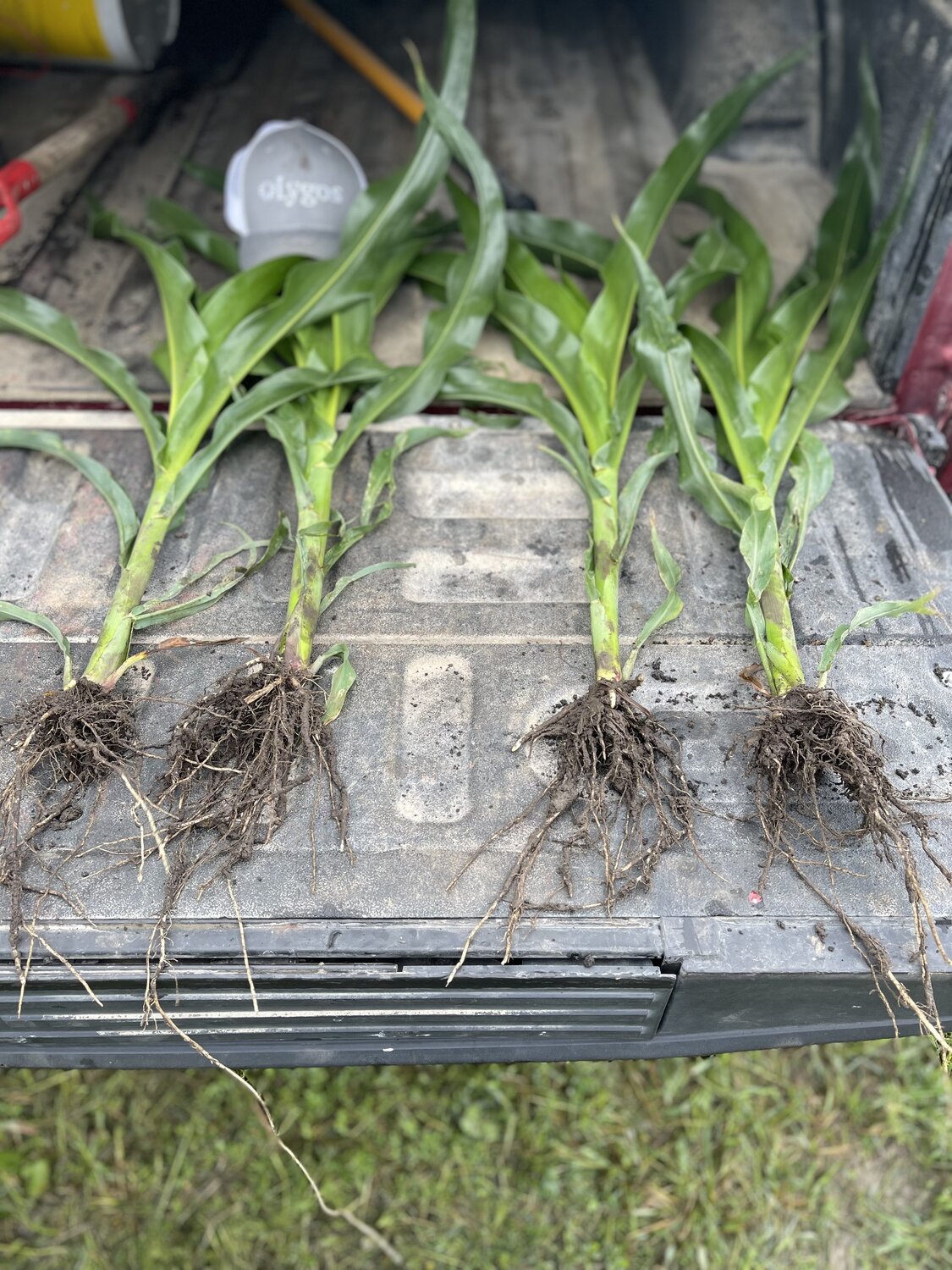
The Critical Role of Tap Root Length for Crop Yields and Health
Soltellus Enhances Crop Yield and Improves Plant Health
May 7, 2024
3 minutes
Agronomy
By Sierra Cotton
Download Free Agronomy GuideThe Critical Role of Tap Root Length for Crop Yields and Health
The demand for comprehensive solutions that address multiple aspects of plant health and growth is more pressing than ever. Sustainable innovation is key to meeting these complex needs, and plant tap-root development is one critical indicator of plant growth and overall health. Lygos’s Soltellus™ polymer is a solution, enhancing not just crop yields but also bolstering overall plant health, optimizing various structures of the plant, such as tap root length—a fundamental factor for robust plant development.
The Significance of Tap Root Length in Crop Yield
A plant’s tap root system is vital for accessing deep water, particularly in arid conditions or nutrient-poor soils that can occur during abiotic stresses, such as drought. Longer tap roots enhance a plant’s ability to sustain vital physiological processes, such as photosynthesis, transpiration, and cell expansion, under stress.
Furthermore, these roots increase resiliency, making plants less susceptible to diseases and pests. Healthier plants can invest more resources into growth and reproduction, thus enhancing crop yield.
Enhancing Nutrient Accessibility through Root Systems
In the intricate web of factors that influence crop health and yield, nutrient uptake stands as a cornerstone. A plant's ability to access essential nutrients is crucial for its growth, health, and productivity. This is where the length of a plant’s tap root plays a pivotal role. With deeper tap roots, plants can reach nutrient reserves that are beyond the grasp of shorter root systems. These nutrients, often leached into deeper layers of the soil, are critical for plant development and can be the difference between a thriving crop with increased yields and one that struggles to meet its potential.
Strengthening Soil Integrity with Deep Tap Roots
Tap roots extend deep into the ground, serving as natural anchors that significantly enhance soil structure and stability. Their penetration into the soil promotes aeration and prevents compaction, which are vital for healthy root development and water infiltration. By improving soil porosity and aggregation, tap roots create pathways that enhance the soil’s ability to retain water and resist erosion. Furthermore, the robust structure of tap-rooted plants supports a thriving microbial ecosystem within the soil, which plays a crucial role in nutrient cycling and organic matter breakdown. This symbiotic relationship between plant roots and soil microbes not only bolsters plant growth but also contributes to the long-term health and fertility of the soil, indirectly supporting higher crop yields.
Soltellus Polymer: A Catalyst for Enhanced Root Growth
Soltellus Polymer has already been shown to significantly boost nutrient retention and availability, crucial for nurturing longer and healthier tap roots. In a recent trial in Texas in corn, the effectiveness of Soltellus is evident, where the use of Soltellus led to an increase in average tap root length.



Conclusion
Soltellus emerges as a solution in agricultural practices that boosts crop yields, improves soil health, and enhances water quality. By fostering deeper, more robust tap roots, Soltellus ensures that crops can thrive even under challenging environmental conditions, setting a standard for sustainable and productive agronomy.
Reach out to our experts to learn more about Soltellus and how it can improve your crop yields and nutrient uptake.